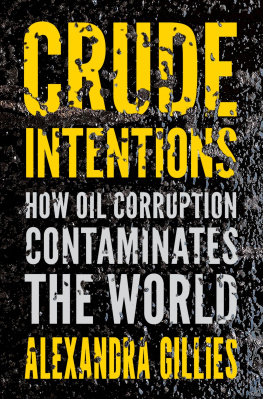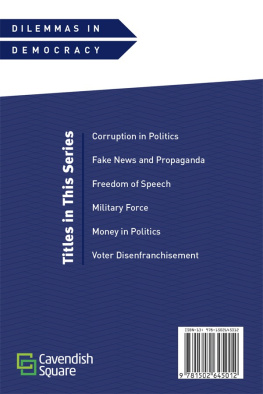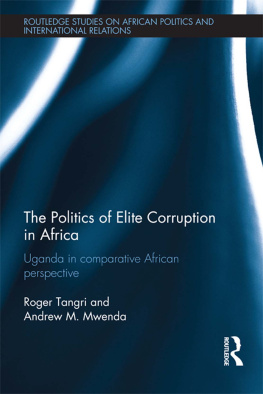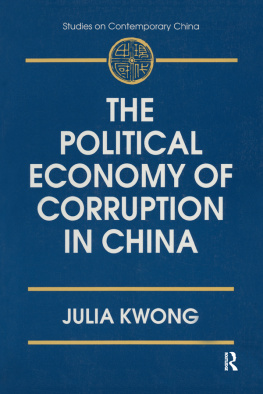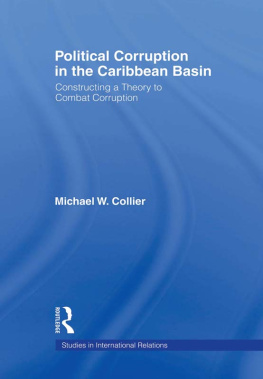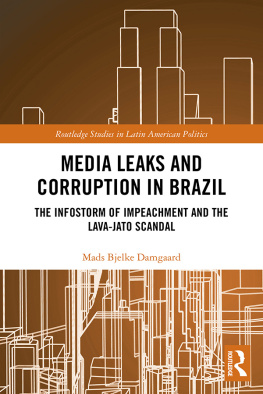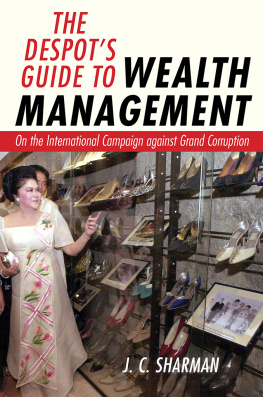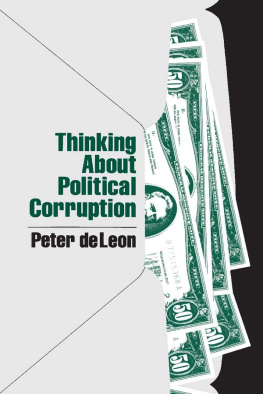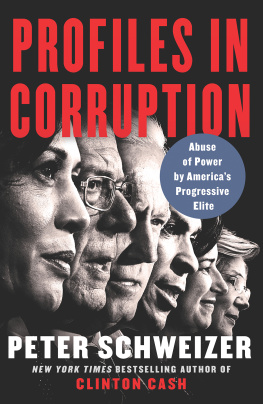Oxford University Press is a department of the University of Oxford. It furthers the Universitys objective of excellence in research, scholarship, and education by publishing worldwide. Oxford is a registered trade mark of Oxford University Press in the UK and certain other countries.
198 Madison Avenue, New York, NY 10016, United States of America.
All rights reserved. No part of this publication may be reproduced, stored in a retrieval system, or transmitted, in any form or by any means, without the prior permission in writing of Oxford University Press, or as expressly permitted by law, by license, or under terms agreed with the appropriate reproduction rights organization. Inquiries concerning reproduction outside the scope of the above should be sent to the Rights Department, Oxford University Press, at the address above.
You must not circulate this work in any other form and you must impose this same condition on any acquirer.
Printed by Sheridan Books, Inc. United States of America
over dinner, we wondered how bulky $400 million would be. The latest rumor making the rounds in Abuja, the capital of Nigeria, was that a servant of a senior government official had wandered into a back room of his bosss house and stumbled upon $400 million in cash. According to the story, the servant packed as much as he could in a suitcase and split town. And so, my friends and I threw out our guesses Is it bigger than a couch? More like a small truck?
During normal times, a rumor like this would have seemed crazy. $400 million is, after all, an enormous amount of money to leave lying around. But these were not normal times. These were the boom years, and anything seemed possible.
Briefly in 2008 and then for a historic four-year stretch beginning in 2010, oil prices averaged above $80 per barrel. For most of that period, prices topped $100. To provide some perspective, during the twenty years prior, prices had languished around $20 or $30 per barrel. The rise in prices created more than $9 trillion in new oil money, and lots of people wanted a share. The governments and companies involved in the industry hadnt seen opportunities to profit like this since the 1970s. Government coffers overflowed, company profits soared, oil men and women took home record-high pay, and hustlers of all types cashed in big.
In oil-rich capitals like Abuja, the deal-making reached a fever pitch. I was living there when prices spiked in 2008, working on my PhD dissertation. I wanted to understand why, during the previous few years, the Nigerian government had embraced some oil sector reforms. It had awarded oil blocks through competitive auctions rather than backroom deals, published detailed data on how much oil money it collected, and created a fund for saving oil revenues for future generations. Steps like these were exciting as well as a real surprise in a country more famous for corruption, environmental disasters, and the other damages oil wealth can bring.
But by the time I arrived in Abuja, not much reform was happening anymore. I spent a year running around the country, passing out my little grad student business cards, and interviewing dozens of officials, executives, and activists about the oil industry. They credited the reform with delivering some short-term gains. But mostly they talked about how much was left to be done. The reforms champion, the former president Olusegun Obasanjo, had left office, and his successor was physically and politically weak. Oil prices had risen, removing the governments need to be efficient. The oil sector was in shambles, especially the national oil company. Vested interests had captured corners of the industry for their own enrichment, and oil companies operated without adequate oversight. Everyone in power fully understood how dysfunctional it all was, yet the reform agenda sat inert.
The absence of reform carried a heavy cost, which could be seen only by leaving the orderly confines of Abuja. An estimated 90 million Nigerians, around half of the countrys citizens, live in extreme poverty. The country has 2 percent of the worlds population but 14 percent of its maternal deaths, with one Nigerian woman dying every thirteen minutes from preventable problems with pregnancy and childbirth. The challenges do not end at birth. One in ten Nigerian children dies before reaching age five, and one in three is chronically malnourished. With a population projected to double by 2050, the number of people facing hunger, disease, and premature death looks set to increase.
Adding insult to injury, Nigerias potential is as evident as its challenges. I loved experiencing its world-class arts scene and vibrant intellectual life, and admire its countless entrepreneurs who thrive despite the rough terrain. Most countries struggling with extreme poverty and unmet promise are not major oil producers; Nigeria is the worlds twelfth largest. In 2008, Nigeria was churning out oil worth over $200 million a day. The government could have been saving millions of lives if it ran the oil sector properly and channeled the earnings into reducing poverty and creating jobs. The more I learned, the more outrageous the situation seemed.
In fact, the cause for outrage was just getting started. In 2010, Goodluck Jonathan became Nigerias president, right as oil prices reached historic heights. I had finished graduate school by then and was working for a nongovernmental organization (NGO) that promoted transparency and good governance in the oil sector. Our aim was to help developing countries avoid the kinds of corruption and missed opportunities that too often accompany oil wealth. I was in Nigeria every few months, working on various small projects. We trained local journalists to monitor some of the more technical aspects of the oil industry, pushed state governments in the oil-producing Niger Delta to reveal details about how they spent their money, and offered comments on various versions of an industry reform bill that sat for years gathering dust in the legislature. It was mostly useful stuff, but with each subsequent trip I made, the projects seemed more and more like rearranging deck chairs on the Titanic.
In 2012, a scandal broke and revealed that the government had paid fuel importers for billions of dollars worth of gasoline and diesel that never actually entered the country. But then no senior officials lost their jobs, no one was convicted of wrongdoing in court, and many of the alleged culprits kept doing business with the government. Around the same time, the government began awarding huge and oddly structured contracts to secretive local oil companies with hardly any industry experience. Stories of back-room payoffs, stolen cargo-loads of oil, and other crimes grew more frequent and convincing. The mythology around the oil minister grew too. Friends and acquaintances traded stories about her apparent neglect of important industry functions, the crew of loyal henchmen who gathered in her house at night, and her plans for using the booming oil sector to benefit herself and the president.
During this time, youd walk into Abujas Hilton hotel, the countrys unofficial deal-making headquarters, and it was just throbbing. Power players and their retinues clustered around the elevators, heading upstairs to the private suites where various bigwigs held court. Businessmen and women from around the world staked out corners of the lobbys piano bar to hold meetings with the previously bit-part players who suddenly commanded serious wealth. Large paintings of the petroleum minister could be purchased at the hotels tourist shop alongside overpriced traditional clothes and jewelry. Five-figure watches and designer bags became standard attire for the drivers, security guards, and mistresses who crowded the hallways. You could smell the money in the air.

